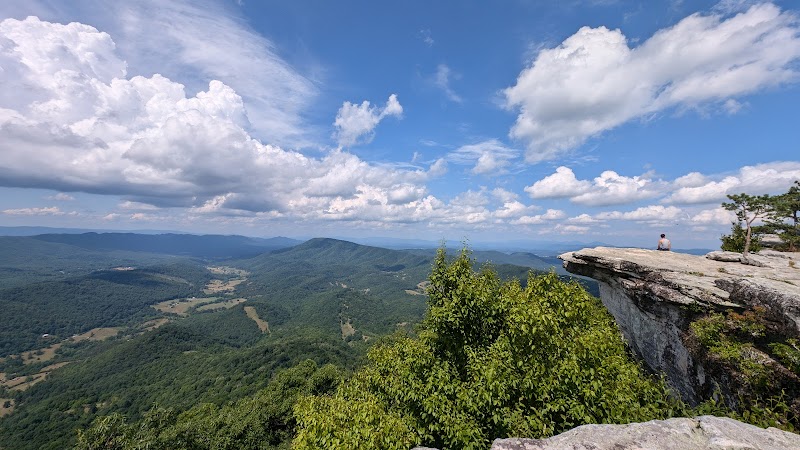
Exploring the Annual Rappahannock Farm Tour in Amissville, Virginia
The Annual Rappahannock Farm Tour in Amissville, Virginia, invites visitors to explore active farms through rolling hills and rustic trails. Combining warm hospitality with hands-on experiences, it’s an accessible adventure into rural life framed by scenic landscapes and seasonal flavors.
Wear Waterproof Footwear
Farm paths can be muddy and uneven, especially after rain. Waterproof boots or sturdy hiking shoes with good grip are recommended for stable footing.
Bring a Reusable Water Bottle
Staying hydrated is crucial, even in cool fall weather. Farms often offer fresh water, but availability varies, so carry your own bottle.
Arrive Early on Weekend Days
The tour draws many visitors, so early arrival helps secure parking and avoid crowds, giving you more time to explore the farms peacefully.
Dress in Layers
Fall weather can shift quickly from crisp mornings to mild afternoons. Layering clothes ensures comfort throughout the day’s changing temperatures.
Exploring the Annual Rappahannock Farm Tour in Amissville, Virginia
Every autumn, the landscape around Amissville, Virginia, transforms into a vibrant stage for the Annual Rappahannock Farm Tour, inviting adventurers and curious travelers to step into working farms that pulse with life and history. This event stretches across multiple farms within the rolling hills of Rappahannock County, offering an engaging mix of agricultural observation, hands-on experiences, and rural hospitality. The terrain varies from gentle fields to modest hills, perfect for a casual walk through November’s crisp air.
The tour covers roughly 10 to 15 miles of accessible paths connecting the farms. Elevation gains are low to moderate, mostly gentle slopes that greet the feet rather than challenge them, making it ideal for a broad range of visitors. Expect to traverse farm roads dusted with leaves, past orchards bursting with late-season apples, and over meadows where the wind pushes the tall grasses like liquid waves.
Nature in this part of Virginia is assertive yet accommodating. The Rappahannock River nearby dares visitors with its persistent current, urging exploration without rushing. The surrounding woodlands stretch expansive arms over the farms, the trees shedding their amber coats to reveal the skeletal beauty beneath. The air is pungent with wood smoke, damp earth, and cider-sweet fruit hanging ripe on the branches.
Practical preparation will maximize enjoyment. Comfortable, sturdy footwear is necessary—farm paths can be uneven, muddy patches appear especially after rain. Hydration is key, even in cooler weather; bring a refillable bottle since many farms provide fresh water stations but supplies can run limited on busy days. Arrive early to beat crowds and secure parking; weekends fill quickly as locals and visitors converge for this unique opportunity to engage directly with Virginia’s agricultural heritage.
Each farm offers distinctive experiences—from cheese making and herb gardens to heirloom vegetables and greenhouse tours—bringing the story of sustainable farming into sharp focus. Visitors also have the chance to purchase fresh produce, artisanal products, and homemade treats, grounding the adventure in tangible rewards.
The Annual Rappahannock Farm Tour is not just a visit; it’s a conversation with the land, a chance to witness a way of life that is fiercely itself, weathering seasons and markets with quiet resilience. For the traveler looking to balance exploration with grounded knowledge, it’s an accessible adventure filled with sensory detail and practical discovery.
Nearby Trips
All Adventures
Boat Charters
Water Activities
Adventures near Amissville, Virginia
Discover the unique and memorable adventures that make Amissville, Virginia special.
Frequently Asked Questions
Are dogs allowed on the farm tour?
Most farms restrict dogs due to livestock and farm equipment. Check individual farm policies before bringing pets to ensure safety and respect for farm operations.
Is the tour suitable for children or elderly family members?
Yes, the tour routes are mostly gentle and accessible, making them family-friendly. However, bring strollers suitable for uneven terrain and plan for frequent breaks.
Can I purchase fresh produce directly from the farms?
Absolutely. Many participating farms sell seasonal fruits, vegetables, dairy, and artisanal products. Bring cash or cards, as payment options vary by location.
What wildlife might I see during the tour?
White-tailed deer often browse near farm edges, songbirds chorus in forest patches, and red foxes occasionally slip through brush. Keep an eye out, but maintain respectful distances.
Are restrooms available during the tour?
Basic restroom facilities are available at some farms. It’s wise to use facilities in the nearby town of Amissville or Culpeper before starting the tour.
Is there public transportation to the farm tour?
Public transit options are limited. Most visitors drive or carpool to the farms. Parking is available but fills up quickly on popular days, so arriving early is best.
Recommended Gear
Waterproof Hiking Boots
Provides support and grip over muddy or uneven farm paths typical in fall tours.
Layered Clothing
Allows temperature regulation throughout a day that can shift from chilly mornings to mild afternoons.
Reusable Water Bottle
Ensures hydration throughout the tour, as water stations may not always be accessible.
Daypack
Handy for carrying purchases, snacks, extra layers, and personal items during the farm tour.
Local Insights
Hidden Gems
- "The Murphy's Creek overlook offers a quiet spot with panoramic views of farm fields and forest hills."
- "A lesser-known herbal garden at one of the farms features rare native plants used in traditional remedies."
Wildlife
- "Eastern box turtles quietly patrol forest floors."
- "Migratory hawks circle high above the ridges in fall."
History
"Rappahannock County’s farms date back to the 18th century, with some still operated by families who have passed down traditional farming practices through generations."
